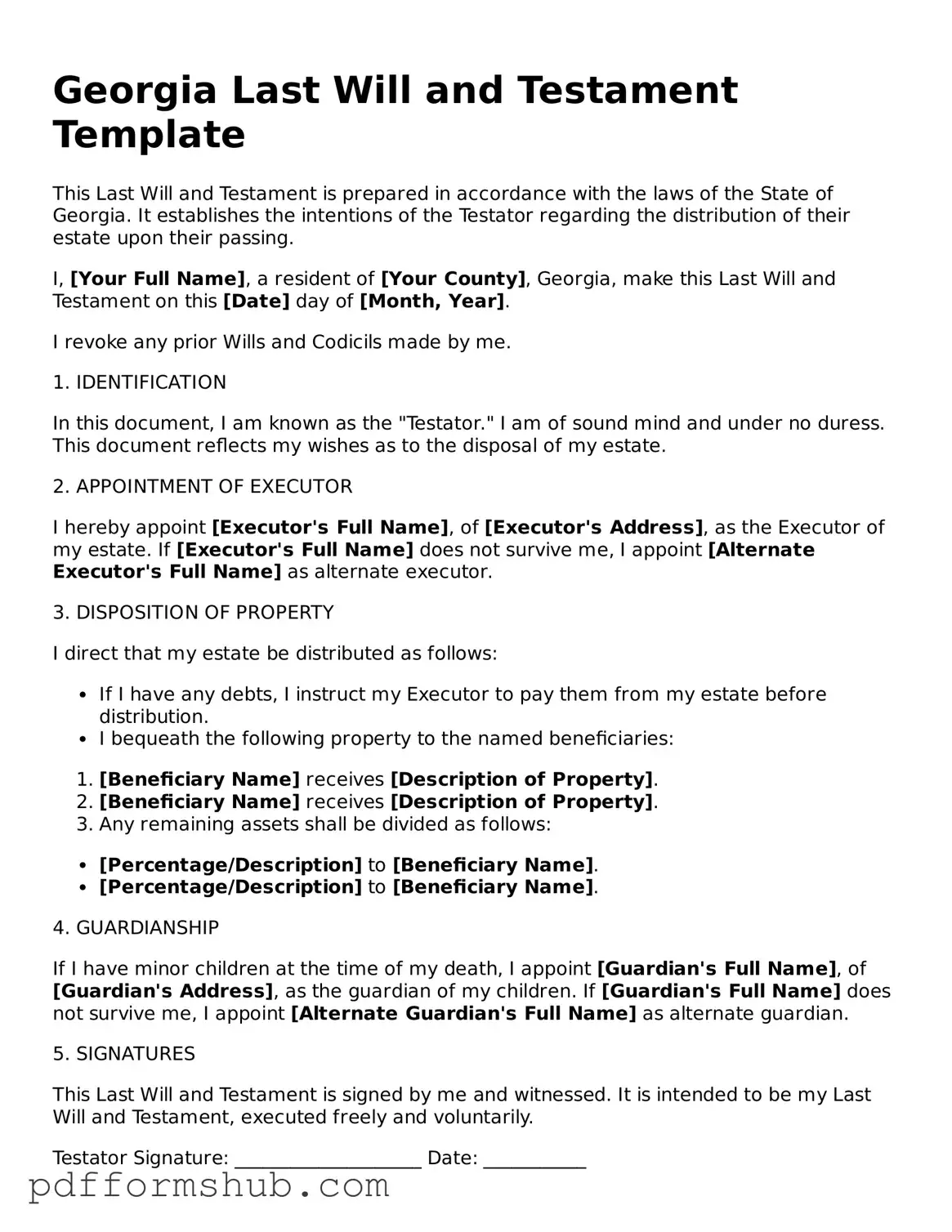Attorney-Verified Last Will and Testament Form for Georgia State
A Georgia Last Will and Testament form is a legal document that outlines how an individual's assets and responsibilities will be distributed after their death. This form ensures that personal wishes are honored and can help prevent disputes among heirs. To take the next step in securing your legacy, consider filling out the form by clicking the button below.
Customize Form

Attorney-Verified Last Will and Testament Form for Georgia State
Customize Form

Customize Form
or
Free PDF Form
Short deadline? Complete this form now
Complete Last Will and Testament online without printing hassles.